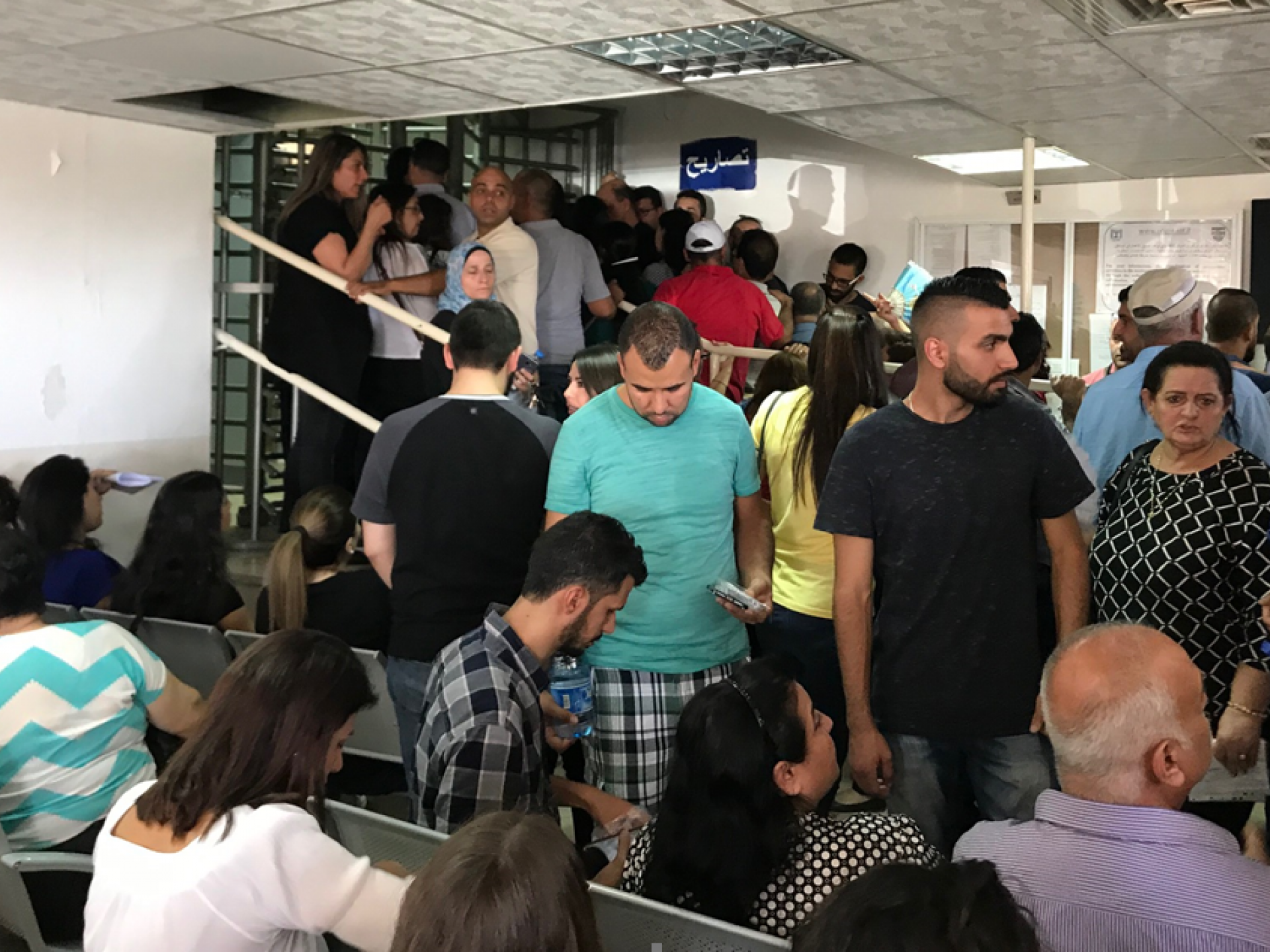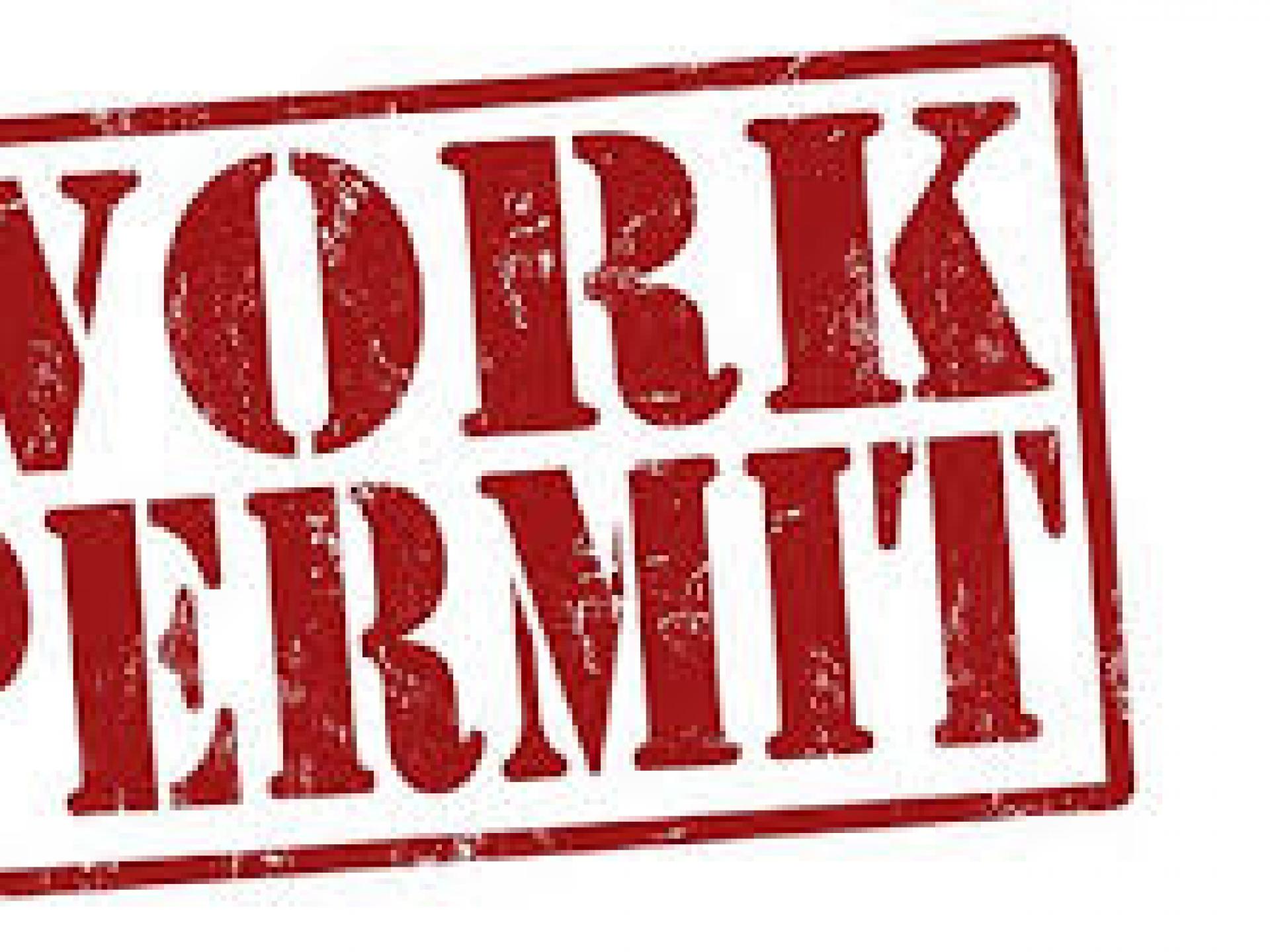
Palestinian interested in working inside Israel proper or in the Jewish settler-colonies in the occupied territories need to obtain work permits issued by Israeli Civil Administration.
At this time, permits are issued directly only to the workers’ Israeli employers. The latter receive permits for specific Palestinian workers and may easily cancel them. A permit enables the worker to enter Israel under the condition that he be employed only and strictly by the employer who applied for this permit – and thus the employer has full control over the permits and can easily trade in them. The price of an illegal permit is about 2,000 NIS a month. The income from illegal trade in permits – which reaches the pockets of the “official” employers - is cautiously estimated at about 480 million NIS annually.
Over the years we have learned how illegal trade in work permits for a steep monthly price has spread, and we have seen the horrific implications of this practice for the Palestinian workers. In 2015 we sent the Coordinator of Government Action in the Territories at the time, General Yoav (Poli) Mordechai, a proposition for a possible solution.

Our proposition in July 2015:
- We see letting the worker freely choose where and for whom to work as cardinally important. At present, the worker is practically a slave, totally given to the good will of his employer and among other things may be “sold” by one employer to another. There is no talk of the worker’s elementary rights under such conditions.
- Israeli employers are willing to take on Palestinian workers but are deterred by the bureaucracy that such employment involves – receiving a quota, handling various restrictions etc.
- Like all migrant workers the world over, here too they perform jobs that Israelis are usually not interested in filling.
- There is no proper supervision of payments such as social security, vacation time, sick leave, working hours etc. An honest, decent employer would be interested in paying his share of such benefits. Social security payments, for example, protect the employer no less than the worker. If the latter is injured, killed or maimed by a work accident – without social security the employer remains unprotected and open to law suits.
- An army regional commander’s edict may solve this problem. It would require that Palestinians in the occupied territories to be treated according to Israeli labor laws. It is perhaps a legal act of annexation that is a part of broader annexation processes, but in this case the Palestinians’ welfare takes precedence: significant enforcement is required, but for every single issue.
- Supervision of employers would be enforced by the Income Tax and Added Value Tax authorities precisely as is carried out regarding any employer in Israel proper.
- Employment offices would treat Palestinians exactly as they do Israeli applicants. Whoever wishes to apply and manage by himself would be free to do so.
In December 2016 the Israeli government ratified reform in issuing work permits that is very close in spirit to our 2015 proposal, in order to make the issuing of such permits to Palestinian workers more efficient and protect their rights by allowing them to change employers more easily.
The implementation of this reform, so far only in the construction business, is expected in late 2019. It is estimated that if such reform is easily implemented, it would significantly lessen the trade in permits. (Read more in Amira Haas article).
The reform may not change the fact that a growing number of Palestinian applicants are refused work permits due to blacklisting by the Shabak, the Israeli police and others, a fact that demands a separate reform – but those who are eligible for permits would be freed of paying the monthly “protection money” that denies them their freedom of employment, fees and social rights.
